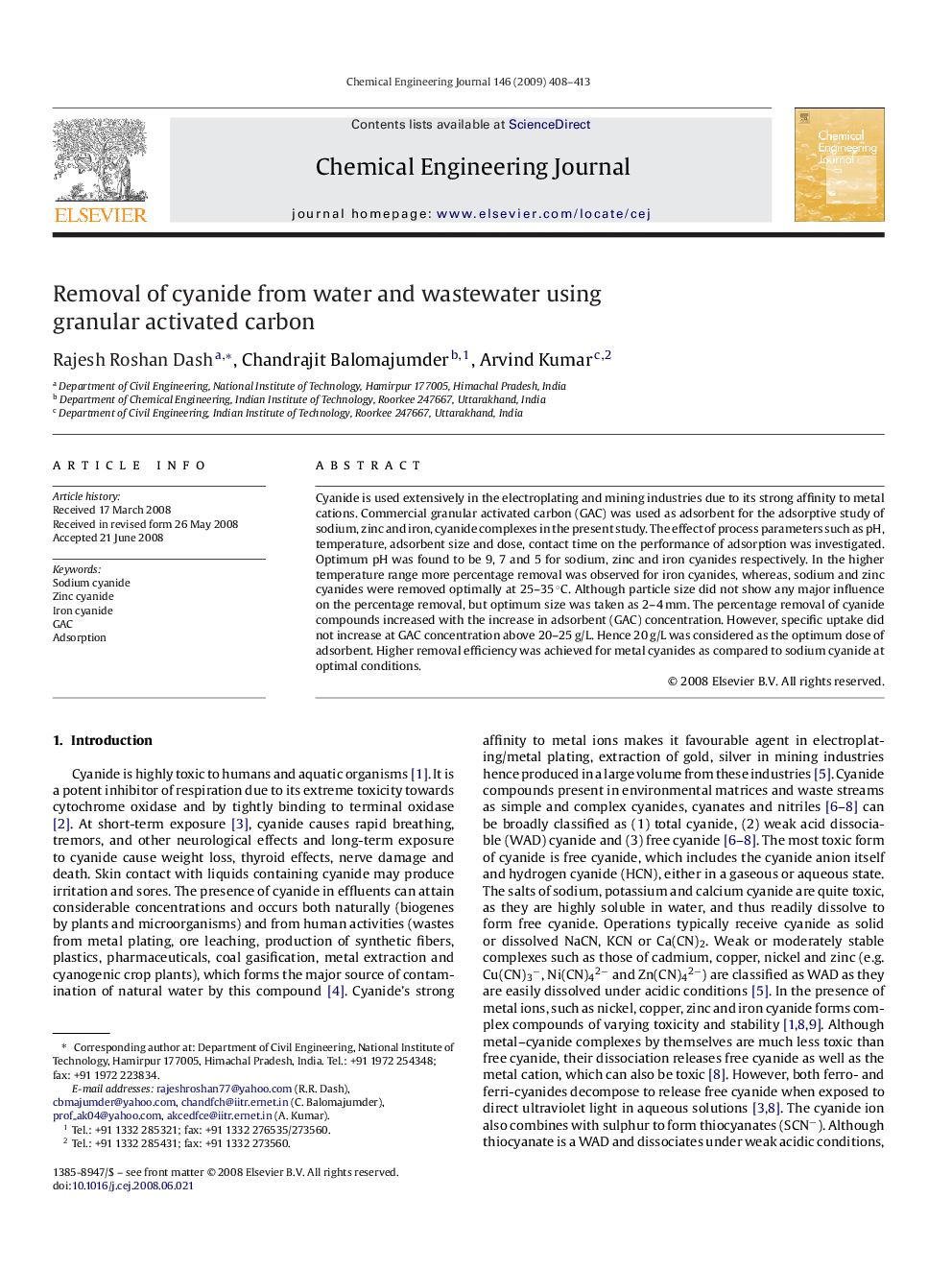| Article ID | Journal | Published Year | Pages | File Type |
|---|---|---|---|---|
| 153906 | Chemical Engineering Journal | 2009 | 6 Pages |
Cyanide is used extensively in the electroplating and mining industries due to its strong affinity to metal cations. Commercial granular activated carbon (GAC) was used as adsorbent for the adsorptive study of sodium, zinc and iron, cyanide complexes in the present study. The effect of process parameters such as pH, temperature, adsorbent size and dose, contact time on the performance of adsorption was investigated. Optimum pH was found to be 9, 7 and 5 for sodium, zinc and iron cyanides respectively. In the higher temperature range more percentage removal was observed for iron cyanides, whereas, sodium and zinc cyanides were removed optimally at 25–35 °C. Although particle size did not show any major influence on the percentage removal, but optimum size was taken as 2–4 mm. The percentage removal of cyanide compounds increased with the increase in adsorbent (GAC) concentration. However, specific uptake did not increase at GAC concentration above 20–25 g/L. Hence 20 g/L was considered as the optimum dose of adsorbent. Higher removal efficiency was achieved for metal cyanides as compared to sodium cyanide at optimal conditions.
